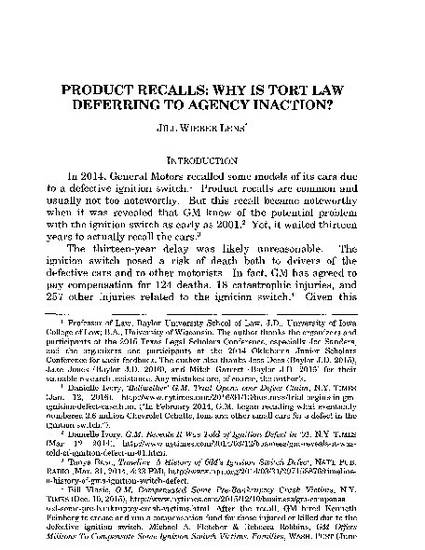
Article
Product Recalls: Why is Tort Law Deferring to Agency Inaction?
St. John's Law Review
(2016)
Abstract
Tort law currently recognizes liability related to a product recall in only narrow circumstances. Liability is possible if the manufacturer acts unreasonably in an agency-ordered recall or in a voluntary recall, which is likely the result of agency encouragement. What this narrow standard leaves out is possible liability for a manufacturer’s choice to simply not recall. But courts agree that only government agencies are equipped to evaluate the reasonableness of a recall and to determine if one is justified. Thus, if an agency never effects a product recall, tort liability is not possible.
A few commentators have applauded or criticized the narrow standard for liability. But this Article is the first to thoroughly question the standard in light of its real basis — deference to administrative agencies. The Article contrasts this complete deference on recall orders to the very limited deference courts give to agency determinations in traditional defect claims, modern post-sale warning claims, and within decisions to punish the manufacturer by imposing punitive damages. The Article also questions the wisdom of complete deference to an agency’s inaction in not ordering a recall and the legal validity of such deference based on its inconsistency with negligence per se principles. Last, the Article argues that there is nothing special about product recalls deserving of such special deference.
Keywords
- products liability,
- product recalls,
- deference,
- agency action
Disciplines
Publication Date
2016
Citation Information
Jill W Lens. "Product Recalls: Why is Tort Law Deferring to Agency Inaction?" St. John's Law Review Vol. 90 (2016) p. 329 Available at: http://works.bepress.com/jill-lens/14/
